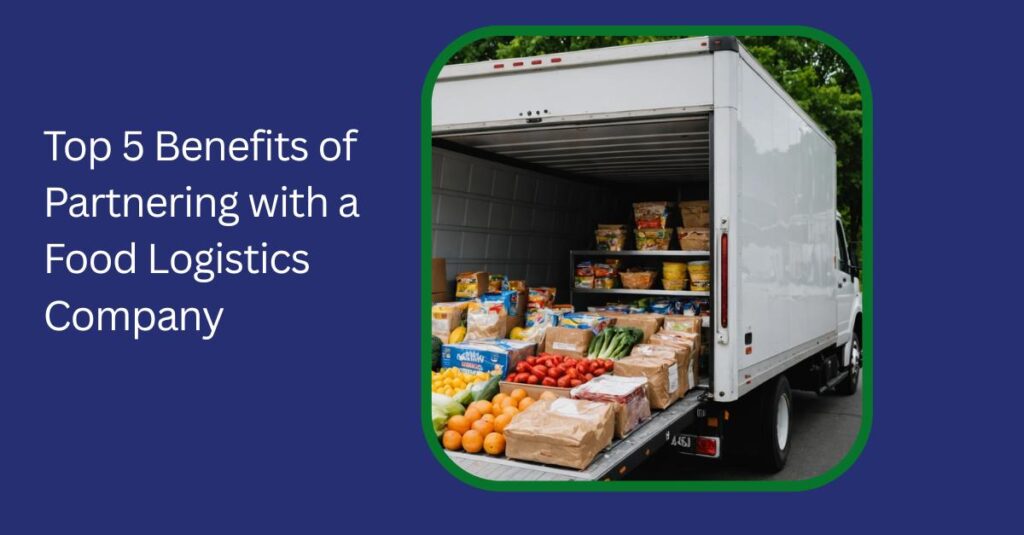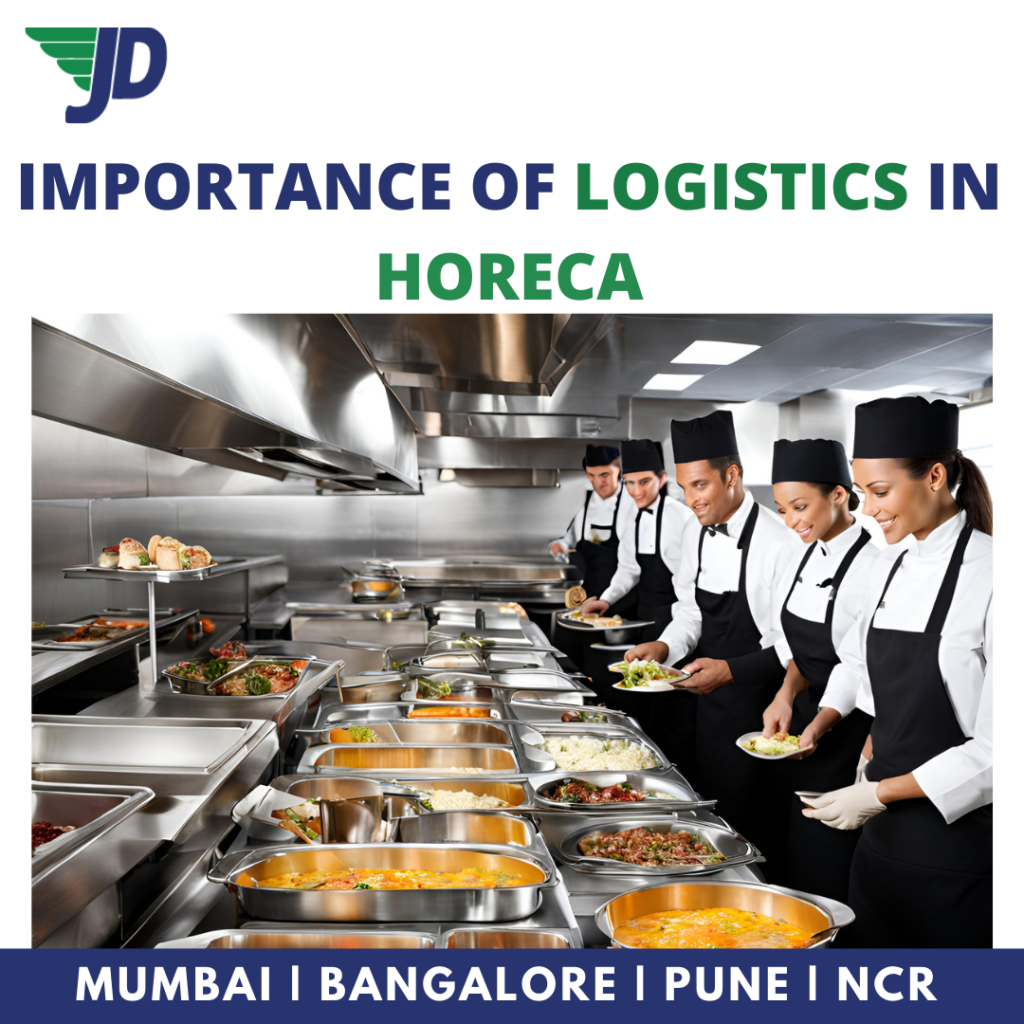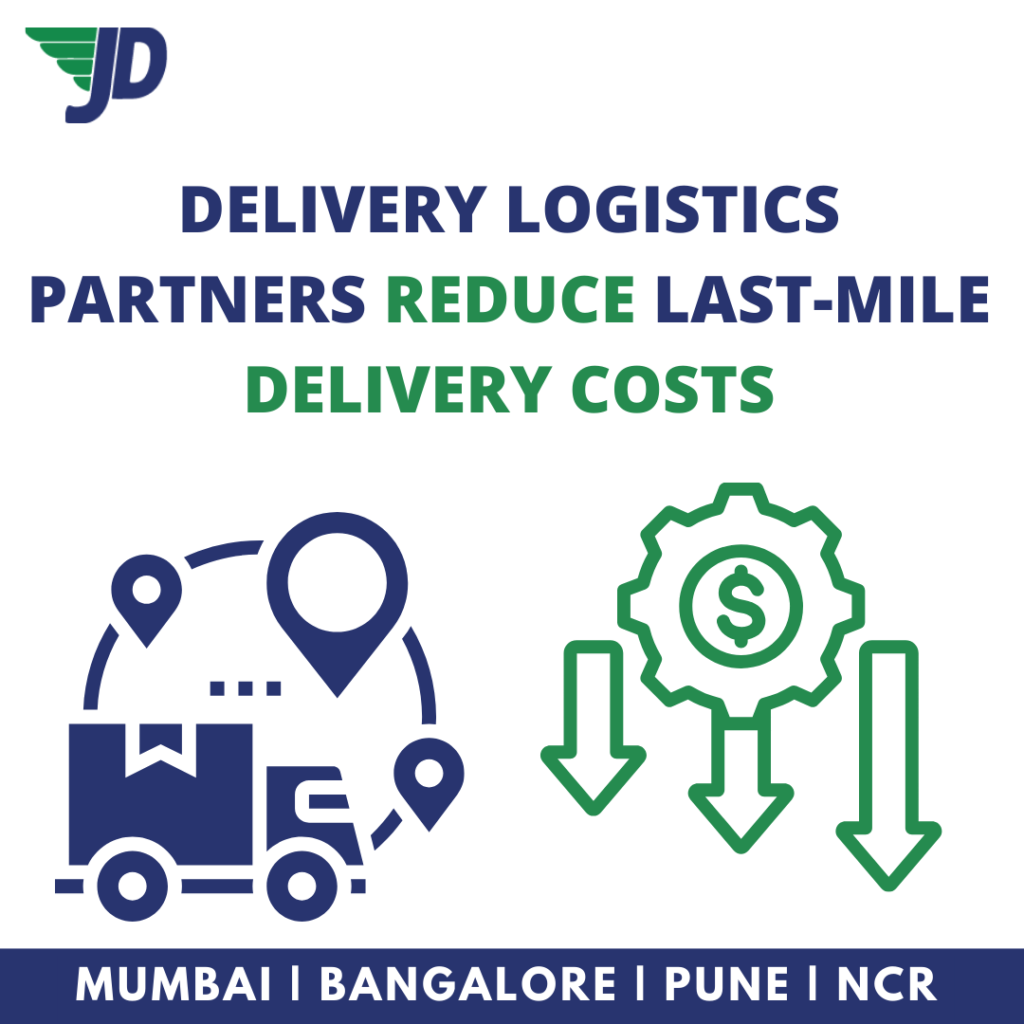Partnering with a food logistics company can revolutionize the way your business operates and enhance its overall efficiency. The top 5 benefits of collaborating with a food logistics company include:.
- Streamlined supply chain management
- Cost savings through economies of scale
- Access to specialized expertise in food transportation
- Improved inventory control
- Ability to focus on core business activities
By entrusting your food logistics to experts in the field, you can ensure timely deliveries, reduce wastage, and meet the demands of a competitive market. This partnership not only optimizes your operations but also elevates customer satisfaction levels by ensuring fresh and quality products reach their destination. Let’s delve deeper into how partnering with a food logistics company can propel your business to new heights and give you a competitive edge in the ever-evolving food industry.
Efficiency and Cost-Effectiveness
Efficiency and cost-effectiveness play pivotal roles in determining the success of a company. Let’s delve into the critical strategies that companies can employ to optimize their supply chain processes through effective collaboration with a logistics partner.
Optimizing Supply Chain Processes through Collaborating with a Logistics Partner
Collaborating with a logistics partner can be a game-changer for businesses looking to enhance their supply chain efficiency. By leveraging the expertise and resources of a specialized logistics provider, companies can streamline their operations, reduce lead times, and improve overall performance. Through seamless integration of processes and data sharing, companies can achieve greater visibility and transparency across the supply chain, enabling them to make informed decisions in real-time.
Realizing Cost Efficiencies and Economies of Scale in Food Logistics
The food logistics industry presents a unique set of challenges when it comes to achieving cost efficiencies and economies of scale. In this section, we will explore how industry leaders are embracing innovative technologies and sustainable practices to drive down costs while maintaining high standards of quality and service. From implementing automated warehouse systems to adopting eco-friendly packaging solutions, businesses are redefining the norms of food logistics to create a more sustainable and cost-effective supply chain.
Furthermore, the integration of advanced technologies like IoT and blockchain is revolutionizing the way companies manage their logistics operations. By harnessing the power of real-time data analytics and predictive modeling, businesses can optimize routes, reduce fuel consumption, and minimize carbon footprint, all while delivering fresher products to consumers.
Join us on this enlightening journey as we uncover the untapped potential of efficient supply chain management and cost-effective logistics solutions in shaping a sustainable and competitive future for businesses across industries. Discover how strategic collaborations and innovative practices are paving the way for a more efficient, resilient, and customer-centric supply chain ecosystem.
Safety and Compliance

Ensuring Adherence to Food Safety Regulations and Compliance Standards
In the food industry, ensuring adherence to food safety regulations and compliance standards is crucial to maintaining consumer trust, safeguarding public health, and upholding the reputation of the business. Food safety regulations are put in place to ensure that food products are handled, processed, and distributed in a manner that prevents contamination and ensures the safety of consumers. Compliance with these standards is not just a legal requirement but a moral obligation that every food business must prioritize.
To meet these standards, food businesses must implement robust food safety management systems, conduct regular audits, and provide continuous training to their staff. It is essential to have proper documentation of processes, maintain hygiene standards, and monitor the entire supply chain to identify and mitigate any potential risks to food safety.
Logistics’ Role in Upholding Food Quality and Regulatory Compliance
Logistics plays a critical role in upholding food quality and regulatory compliance throughout the supply chain. Efficient logistics management ensures that food products are transported, stored, and handled under optimal conditions to prevent contamination and spoilage. Temperature control, proper handling procedures, and timely delivery are key factors that logistics teams must consider to maintain food quality.
Moreover, logistics processes must align with regulatory requirements concerning food safety, labeling, and traceability. Proper documentation and tracking of products during transportation and storage are essential to demonstrate compliance with regulations and ensure the integrity of the supply chain. Any lapses in logistics can lead to quality issues, regulatory violations, and reputational damage for the food business.
Importance of Training and Education in Safety and Compliance
Besides implementing stringent food safety protocols and efficient logistics practices, investing in training and education for employees is paramount. Employees at all levels of the food supply chain should receive regular training on food safety practices, compliance standards, and updated regulations. Well-trained staff are better equipped to identify potential hazards, prevent foodborne illnesses, and ensure regulatory compliance in their daily tasks.
Training programs should cover topics such as proper food handling techniques, sanitation practices, allergen control, and crisis management. By fostering a culture of continuous learning and improvement, food businesses can enhance their safety and compliance measures, reduce risks, and maintain a strong reputation in the industry.
Implementing Technology Solutions for Enhanced Safety and Compliance
Technology plays a significant role in enhancing safety and compliance efforts within the food industry. Food businesses can leverage various technological solutions to streamline food safety management, improve traceability, and enhance transparency in their operations. For instance, the use of blockchain technology can enable real-time tracking of food products from farm to table, ensuring authenticity and quality throughout the supply chain.
Additionally, advanced monitoring systems, IoT devices, and data analytics tools can help food businesses monitor critical control points, identify trends, and proactively address potential issues before they escalate. By embracing technological advancements, food businesses can strengthen their safety and compliance practices, respond swiftly to emerging challenges, and adapt to evolving regulatory requirements.
Conclusion
A comprehensive approach to safety and compliance is essential for the success and sustainability of food businesses in today’s competitive market. By prioritizing adherence to food safety regulations, implementing robust logistics practices, investing in employee training, and leveraging technology solutions, food businesses can safeguard consumer trust, protect public health, and uphold industry standards. Continuous improvement, vigilance, and a commitment to excellence in safety and compliance are key pillars that underpin the success of food businesses in meeting regulatory requirements, mitigating risks, and delivering high-quality products to consumers.
Specialized Expertise and Innovation
Accessing Tailored Industry Knowledge in Food Logistics
Having specialized expertise and innovative solutions can make all the difference in ensuring the smooth and efficient flow of goods from farm to table.
Accessing Tailored Industry Knowledge in Food Logistics
One of the key factors that set successful food logistics companies apart is their ability to tap into specialized expertise tailored to the unique needs of the industry. From understanding the intricacies of perishable goods transportation to navigating complex regulations, having access to professionals with in-depth knowledge can streamline operations and minimize risks.
Innovative Approaches to Addressing Food Supply Chain Complexities
As the global food supply chain grows more intricate, innovative approaches are essential to address the complexities that arise. From leveraging technology such as IoT and blockchain for real-time tracking and traceability to implementing sustainable practices that reduce waste, staying ahead of the curve is crucial in meeting the demands of modern consumers.
By combining specialized expertise with a spirit of innovation, food logistics companies can not only adapt to the challenges of today but also pave the way for a more efficient and sustainable future.
Enhancing Efficiency Through Automation and Data Analytics

Automation and data analytics have emerged as game-changers in the realm of food logistics. By automating routine tasks like inventory management and utilizing predictive analytics to forecast demand, companies can optimize their operations, reduce costs, and minimize errors. Real-time data insights also enable quick decision-making, enhancing overall efficiency.
Sustainability as a Core Business Value
Sustainability has become a key focus for food logistics providers. Embracing eco-friendly practices such as using electric vehicles for transportation, implementing energy-efficient warehouses, and reducing packaging waste not only aligns with consumer preferences but also contributes to a greener planet. Companies that prioritize sustainability often gain a competitive edge and build stronger relationships with environmentally conscious partners.
Continuous Innovation for Resilience
In a dynamic industry like food logistics, continuous innovation is vital to staying resilient in the face of challenges. Whether it’s exploring new packaging solutions to extend product shelf life or adopting predictive maintenance to prevent equipment downtime, a culture of innovation fosters agility and adaptability. By constantly seeking ways to improve processes and embrace emerging technologies, companies can future-proof their operations and remain at the forefront of the industry.
Flexibility and Scalability
The ability of a company to adapt and evolve is paramount for sustained success. This is particularly crucial in industries like logistics and food, where responding to demand fluctuations and implementing scalable solutions are key to staying competitive. Let’s delve deeper into how businesses can effectively harness flexibility and scalability to thrive in dynamic markets.
Embracing Agile Logistics Strategies for Dynamic Demand
The logistics sector operates in a volatile environment where demand for products and services can vary significantly due to seasonal shifts, market trends, and unforeseen events. To effectively navigate these fluctuations, companies need to adopt agile logistics strategies. This involves leveraging real-time data analytics to anticipate demand patterns, implementing dynamic route planning to optimize delivery efficiency, and deploying adaptable warehousing solutions for seamless inventory management. By embracing these practices, companies can enhance operational agility and responsiveness, ensuring they meet customer demands promptly and efficiently.
Unlocking Scalability in Food Enterprises through Innovative Solutions
As food enterprises experience growth, the challenge lies in scaling operations to meet escalating demand while upholding quality standards. To address this, businesses can explore scalable solutions that support expansion without compromising product excellence. Cloud-based inventory management systems offer real-time visibility into stock levels and streamline supply chain processes, while automated production technologies enhance efficiency and consistency. Additionally, forging strategic partnerships with suppliers and distributors can facilitate market expansion and enhance product reach. By embracing these scalability solutions, food enterprises can achieve sustainable growth and enhance their market presence.
Striving for Long-Term Success through Flexibility and Scalability
By prioritizing flexibility and scalability, companies position themselves for long-term success and resilience in the face of market uncertainties. The ability to adapt swiftly to changing conditions and efficiently scale operations in response to evolving demands is essential for staying ahead in competitive industries. Through continuous innovation, strategic planning, and a commitment to operational excellence, businesses can not only weather market challenges but also drive sustainable growth and profitability.
Flexibility and scalability are indispensable cornerstones for businesses aiming to thrive in today’s dynamic business landscape. By embracing these principles and implementing innovative strategies, companies can chart a path towards enduring success and market leadership.
Intracity Logistics and JustDeliveries
Intracity logistics are vital for local food businesses, ensuring timely delivery of perishable goods. JustDeliveries, a leading B2B logistics firm in India, has transformed urban deliveries with innovative cold chain solutions. They offer tailored services like ambient as well as cold storage, temperature tracking, and shared van models, optimizing delivery efficiency and sustainability. JustDeliveries sets a new standard in intracity logistics by prioritizing safe delivery of perishable goods, leveraging technology for a seamless experience. Their focus on sustainability and innovation shapes the future of urban logistics, driving operational efficiency and customer satisfaction.
By integrating cold chain solutions, real-time tracking, and data insights, JustDeliveries enhances F&B businesses’ success and promotes a sustainable approach to urban deliveries.
Conclusion
Partnering with a food logistics company can significantly benefit businesses in the food industry by: – Improving supply chain efficiency – Ensuring product safety and quality – Reducing costs – Expanding market reach – Providing expertise in navigating complex regulatory requirements.
By leveraging these advantages, companies can streamline operations, enhance customer satisfaction, and ultimately achieve long-term success in the competitive food market.

Mansi Mahansaria
I’m Mansi Mahansaria, CEO and Founder of JustDeliveries, a B2B logistics company specializing in the food and beverage sector. With a background in Chemical Technology (ICT Mumbai), an MBA (FMS Delhi), and experience at IDFC Private Equity and Tata Group, I’ve built a plug-and-play logistics network helping F&B brands scale efficiently. I also share insights on entrepreneurship and logistics at industry and academic events.






